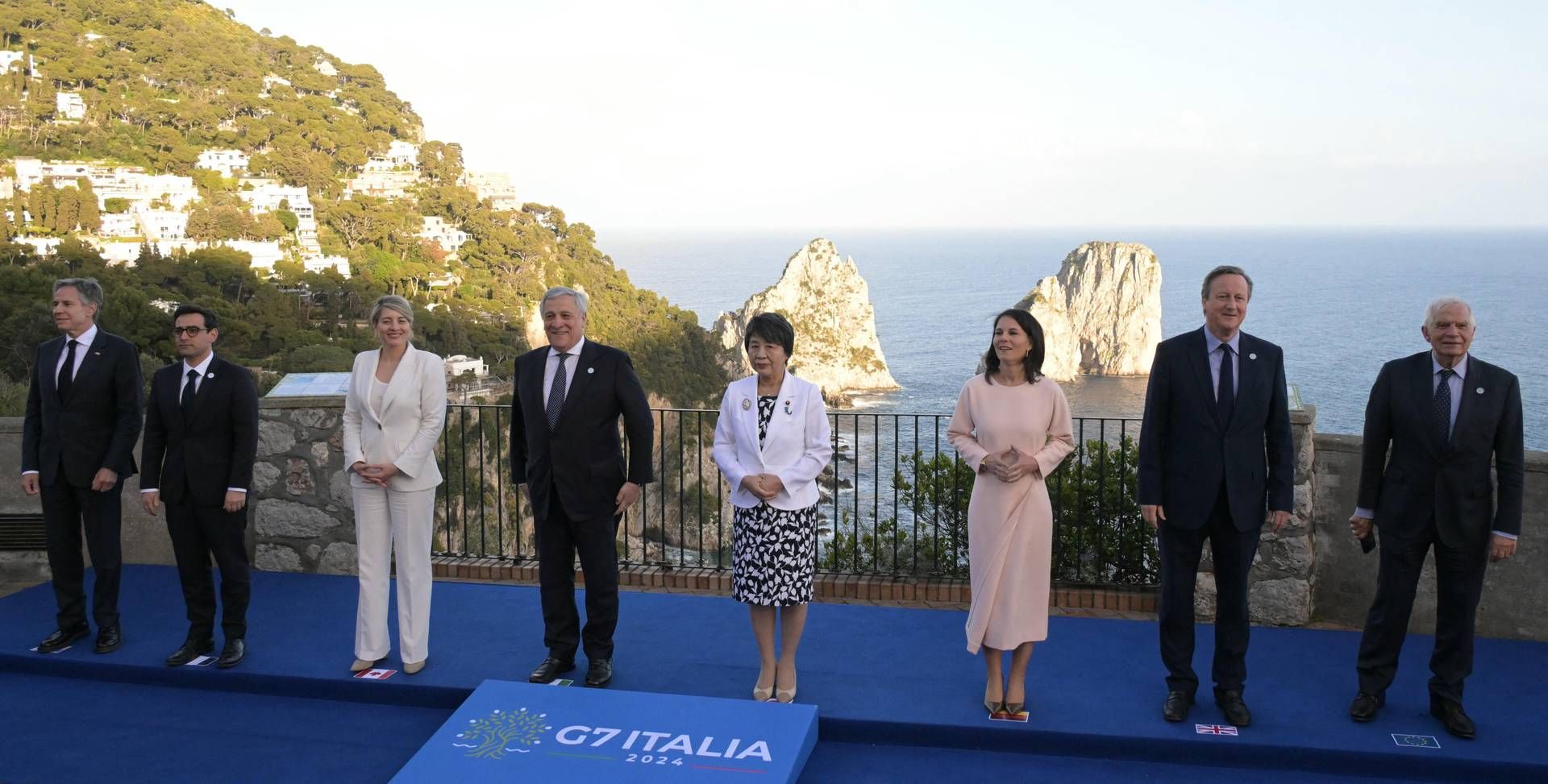The international community breathes a sigh of relief. The attack attributed to Israel on Iranian territory took place, but in the ways in which many Western chancelleries somehow hoped. A targeted raid, far from Tehran and the sensitive nuclear facilities, which would have caused no victims, but which at the same time sounds like a warning to the ayatollahs. The news was received with moderate appreciation on Capri, the scene of the G7 Foreign Ministerial.
Israel followed the request to act with “common sense”, declared the ‘master of the house’, Antonio Tajani, in the final press conference in which he repeatedly repeated the appeal for “de-escalation” between the parties. A clear political will also emerged from the meeting on the Campania island, prompted by the Ukrainian Foreign Minister, Dmytro Kuleba, who participated in a dedicated session, accelerate on the air defense of Ukraine.
A G7, the one that concluded in Capri, which “took place in complicated days from an international point of view – recognized Tajani, summing up the meeting – but I believe that these three days of work were a success because we recorded great unity of purpose and convergence on all the most important international issues“. Starting from the Middle East.
Israel
The Israeli raid on the province of Isfahan forced a review of the entire agenda of the morning session, dominating the scene. On the question Israel-Iran “I immediately wanted there to be a clear message: the political objective of the G7 is called de-escalation“, the head of the Farnesina said in front of journalists, highlighting the passage of the G7 conclusions which warns Tehran against repeating the attack against the Jewish State.
“The Iranian government will be held responsible for its destabilizing actions”, remarked the ministers who then said they were “ready to adopt further sanctions or other measures, now and in response to various destabilizing initiatives” by the Islamic Republic.
The minister, who was in contact with the Italian embassies in Tel Aviv and Tehran and reassured on the conditions of Italians in Iran, underlined that avoiding large-scale retaliation was “also the fruit of work and commitment of the G7 which served to improve the climate”.
The commitment of the Group of Seven Foreign Ministers is to “put out the fire” in the region, Tajani continued, highlighting the importance of making progress on the war in Gazathe crisis at the origin of everything: immediate ceasefire, release of hostages, increase in humanitarian aid these are the priorities listed by the Foreign Minister, who indicated the two-state solution as the only possible one in the long term. Obviously a solution that does not include the presence of Hamas.
Tajani then disclosed that the United States was informed “at the last minute” by Israel. And the Secretary of State, Antony Blinken, upon specific question clarified that the US “was not involved in any operation” by Israel against Iran, not confirming if and when Washington was notified.
“Our work is to de-escalation,” Blinken added, acknowledging Italy’s “crucial role” in preventing a wildfire from breaking out in the Middle East. A role that Tajani confirmed. “Not all G7 countries have diplomatic interlocution with Iran, we will give clear messages, as I did with the Foreign Minister a few hours before the attack (against Israel, ed.) which reiterate our political position, our commitment to de-escalation,” he said.
Ukraine
The war in Ukraine was the other topic that dominated the talks between the G7 foreign ministers. Faced with pressure from Kuleba and the general secretary of NATO, Jens Stoltenberg, there was a precise commitment to do everything possible to guarantee Kiev the Patriot and Samp/T air defense systems. “Each member of the G7 is making an extraordinary contribution to Ukrainian defense”, the US Secretary of State was keen to point out, who expressed “particular recognition to Prime Minister Giorgia Meloni for her decisive leadership”. And regarding the aid package that has been blocked for months in Congress, he highlighted that “the most important thing is to vote. I know that they will make a profound difference, practically immediately, ensuring that Ukraine has what it needs to defend itself from ‘Russian aggression’.
Tajani reiterated to Kuleba that the need to achieve “a just and lasting peace is the priority of the Italian presidency of the G7”. The two, he explained in the press conference, had a conversation with the Minister of Defense, Guido Crosetto. “We will do everything possible to help Ukraine also from the point of view of air protection”, he said, reiterating the commitment also put in black and white in the final document of the G7. In the text, the ministers expressed their “determination in particular to strengthen Ukraine’s air defense capabilities to save lives and protect critical infrastructure. We will also work with partners to this end.”
“We are intensifying our defense and security assistance to Ukraine and increasing our production and delivery capabilities to assist the country. We also support efforts to help Ukraine build a future force capable of self-defense and deterrence against any aggression,” they added. The issue of military aid will also be on the table of the Foreign Affairs and Defense Council, the so-called ‘jumbo’, which will meet on Monday in Luxembourg.
